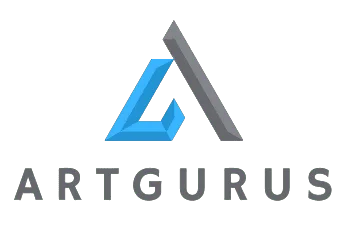Introduction
In an increasingly interconnected world, societies face challenges that demand multifaceted solutions. These are the issues of crime, migration, and conflicts, each a complex phenomenon rooted in systemic inequalities and mismanagement of resources. The life of common people revolves around the basic needs to survive. The equal distributions of resources emerge as a pivotal strategy in addressing these interconnected challenges.
Resource Distribution
The lack of access to education, economic opportunities, and social resources, or their unequal distribution, negatively impacts every society and generation.
Economic inequality drives crime, with poverty increasing illegal activities. Progressive taxation, universal basic income, and financial inclusion, targeting women, youth, and marginalised groups can reduce disparities.
Education prevents crime by breaking cycles of poverty. Universal access to quality education and curricula incorporating conflict resolution and life skills can reduce criminal behaviour.
Community programs like mentorship and recreational initiatives foster cohesion, deterring crime.
Addressing Migration
Migration is often driven by economic disparities, conflicts, political instability, and environmental challenges. Key solutions include:
Wealthier nations must invest in developing countries through infrastructure, SMEs, and fair trade. Ending exploitative labour practices is essential to bridging income gaps. Universal access to healthcare, education, and housing reduces migration incentives. Climate adaptation and renewable energy projects can mitigate forced migration due to environmental crises.
Conflicts arise from resource scarcity and systemic inequality. In an increasingly interconnected world, multicultural societies have become the norm rather than the exception. The tapestry of diversity, woven with threads of various cultures, religions, and ethnicities, brings both challenges and opportunities. Navigating the complex terrain of co-existence requires detailed understanding of the obstacles faced.
Land reform and equitable revenue sharing reduce tensions. Electoral reforms and power-sharing agreements ensure representation. Investments in post-conflict infrastructure and reparations promote reconciliation.
Challenges and Solutions
Addressing tax evasion and money laundering is vital (Illicit Financial Flows). Global cooperation, transparency, and strong institutions are required to track, stop outflow and recover illicit funds or capital.
Current lending practices often impose austerity, perpetuating “financial slavery”. Reforming international financial systems, offering debt relief, and promoting sustainable development can restore sovereignty. Transparent institutions and empowered civil societies are critical to combat corruption and ensure equitable resource allocation. Initiatives such as the EITI help ensure that revenues from natural resources are used for the public.
Technology can bridge gaps in education, healthcare, and finance. Global institutions must also undergo reform, abolishing veto power in the UN to promote inclusive decision-making and rebuilding trust in globalisation through equitable practices.
Recommendations
Implement progressive taxation, financial inclusion programs, and job creation initiatives. Build transparent, accountable institutions to manage public resources effectively, “One Law” for all.
Combat illicit financial flows through global transparency frameworks. Provide technical and financial support to developing countries for building institutions capable of tracking and recovering illicit funds.
Introduce reforms in international lending practices to prioritise equity and sustainability. Prioritise debt relief and forgiveness for heavily indebted poor countries (HIPCs) to free up resources for essential public services.
Ensure universal access to education and healthcare, emphasising underserved areas. Give more importance to youth voices. Invest in climate adaptation and renewable energy for vulnerable regions. Use technology to enhance resource distribution and foster regional collaborations.
Abolish UN veto power to democratise global governance. The International Court of Justice and the United Nations should be granted immunity from any restrictions or sanctions imposed by member countries. Additionally, the United Nations should have executive authority to enforce its resolutions, either through democratic means or with the support of United Nations troops.
The United Nations must make sure that all the member countries adhere to the Universal Declaration of Human Rights. Strict adherence to these 30 Articles must be ensured to diminish feelings of discrimination and bias within nations.
Conclusion
Equitable resource distribution is vital for addressing global challenges like crime, migration, and conflict. Tackling financial inequality, reforming global institutions, and empowering marginalised communities can create a fairer, more inclusive world. This requires shared responsibility and sustained effort for a peaceful and just society.






4,032 responses
купить диплом моряка купить диплом моряка .
**glpro**
glpro is a natural dietary supplement designed to promote balanced blood sugar levels and curb sugar cravings.
вывод из запоя краснодар
narkolog-krasnodar019.ru
лечение запоя
купить технический диплом купить технический диплом .